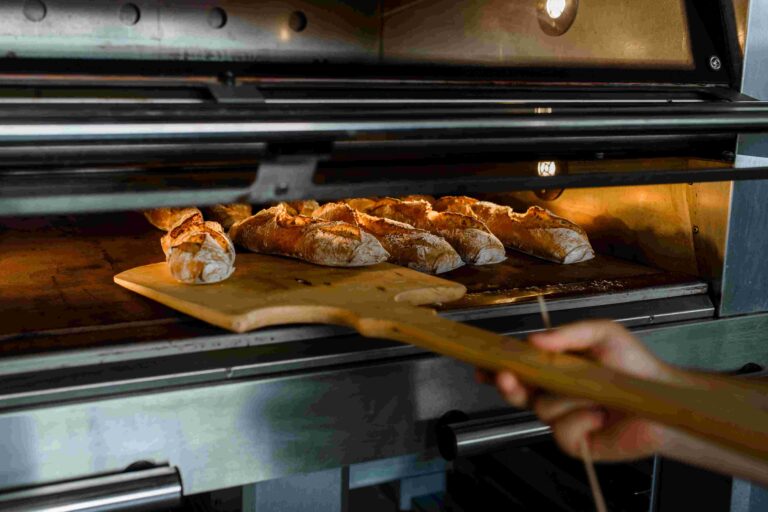To make this measure more effective and tailored to the specific context of your company, we recommend that you first perform an overall analysis of your energy situation.
Replacement of a gas or fuel oil oven with an electric oven (baking ovens)
The project consists in replacing an existing oven running on gas or fuel oil with an electric oven using infrared to bake the product.
Installing this technology, which has been available on the market for over 5 years, can save a company up to 80% on the oven’s energy consumption, as well as considerably reduce its carbon footprint because of its transition to a new energy source (from gas/fuel oil to electricity). However, this measure is rather difficult to implement, would entail a medium-to-long term return on investment, and requires a production shutdown during installation.
Energy and environmental impact
The ovens use electric coils to heat or generate infrared energy and distribute it to the surface of the product to be baked, but without heating the ambient air. These ovens are 50-80% more efficient than conventional ovens because the baking process does not heat large volumes of air.
They also help reduce baking time by almost half. For example, an infrared oven can bake bread in only six minutes, compared to 17 minutes in a traditional oven. In addition, the power level initially set at 100% can be reduced to 30-50% during the second and third baking stages.
The use of infrared ovens reduces both overall energy consumption and baking time, improving the productivity of a bakery.
Subsidy application
State subsidies
Please note: any application for government or non-government subsidies must comply with the “incentive effect”, subject to compliance with the subsidy conditions.
To ensure that the incentive effect of the aid is respected, no binding commitments may be made (acceptance of a quote; advance)
- SME Packages – Sustainability
- Financial Aid for small and medium-sized enterprises covering up to 70% of eligible costs for the implementation of a project aimed at reducing the environmental impact. The eligible project budget must be in a range from 3.000 € to 25.000 € excl. VAT.
- For more information:
- Chambre des Métiers for craft companies
- Chambre de Commerce for businesses in the non-craft sectors
- Environmental protection scheme – Investment aid for the protection of the environment
- Verification of company eligibility and costs: General Directorate – Industry, New Technologies and Research
- Support in drawing up the aid application file prior to submission to the Ministry of the Economy
- For any questions: Luxinnovation
- More information on investing in the environment can be found in the Guide simplifié pour les entreprises (Simplified Guide for Businesses)
N.B. While several state subsidies cannot be granted for the same project, they can be combined with assistance from energy suppliers.
Subsidies from electricity and natural gas suppliers
Since 2015, natural gas and electricity suppliers are required to make energy savings for consumers under the obligation scheme. Since then, energy suppliers have been offering support and advice, as well as subsidy programmes for consumers to implement energy efficiency measures. The amount of the premium is proportional to the annual energy saving (in MWh). The following suppliers offer this service for companies:
N.B.: Supplier subsidies can be combined with a state subsidy for the same project.
